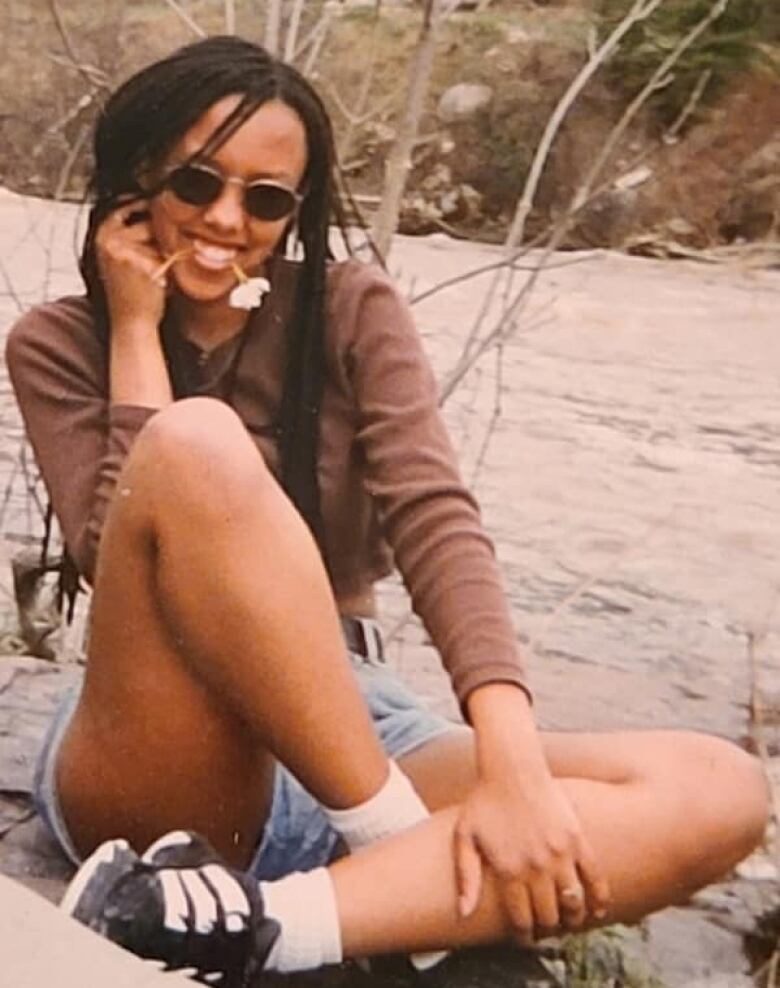David Ridgen takes listeners along for the ride in new investigative series The Next Call
Don’t worry, the Someone Knows Something podcast isn’t going anywhere

Our pandemic-restricted world hasn't deterred investigative podcaster David Ridgen from doing what he does best. In fact, the unique limitations gave way to an entirely new method of operation, one that Ridgen describes as "all advantage," no drawback.
The Next Call, launching June 9, investigates unsolved cases through a strategic series of phone conversations; Ridgen unearths new details about cold cases one call at a time, bringing listeners along for the journey and, hopefully, bringing the families closer to justice.
Ridgen, known for his award-winning work on the podcast Someone Knows Something, is the producer, host and lead investigator of this new series. CBC Podcasts caught up with Ridgen to chat about the new series. Here is part of that conversation.
What makes this show different from Someone Knows Something? Why not just make this a new season of SKS?
The first thing people need to know is that The Next Call is not intended as a replacement for Someone Knows Something (SKS). SKS will continue and I will continue with it. The Next Call was developed out of a desire to find a way to serve more of the many many victims' families and unsolved cases I receive each week as suggested by listeners and family members. The Next Call format will allow me to investigate more cases in more places, and at the same time will allow me to expose more of my process.
You're calling the show "the first of its kind" — what does this mean?
This is the first true crime podcast that uses the phone as the prime driver of real investigation, and also to my knowledge the first that highlights investigative processes as fully as The Next Call does.
In some cases I have felt that the phone offered me a better way to reach into people's memories.- David Ridgen, host & creator
Tell me about the challenges and advantages of investigating and recording while social distancing.
Using the phone for The Next Call, so far, has been all advantage. While it is true that I cannot see body language and use it to make sense of what is being said, I think the phone introduces a new level of "anonymity feel" that can make the people I interview relax more and feel at ease describing what they know. In some cases I have felt that the phone offered me a better way to reach into people's memories.
SKS had strong connections with the families and loved ones of victims. Were you still able to do that under these novel circumstances?
I think so. But the families are the best judge of that. Constant communication through phone, text, video or what have you. And in at least two cases, a bit of face-to-face actually.

What can you tell us about the first case explored in The Next Call?
The first case is about the disappearance of Melanie Ethier from a small town in northeastern Ontario almost 25 years ago. No trace of her was found and her friends and family are still working the case every day. Melanie, age 15, was a smart and incredibly caring person who worked at a daycare and went to a French high school. Mel had hoped to become a teacher after graduation. The night Melanie went missing, she had just left a friend's house after watching a movie. It was a short walk away from where she, her mother and younger sister lived, but she never made it. There are many unanswered questions, but there's also new information we will be revealing for the first time.
Did anything shock/surprise you while investigating Melanie's case?
I am always surprised what can be learned by simply asking questions and focusing on something for an extended period. People remember useful and verifiable information all the time just by slowing down and giving themselves the time to go there. There's always something staring everyone in the face. And that can certainly be seen in Melanie's story.
You moved from one murder investigation project (SKS) to another. Especially after all we've been through in the past year, how do you manage it all (emotionally, mentally)?
I don't manage it very well truth be told. I don't think anyone can take this in without being altered. And I get only just below the surface. My heart goes out to the families, friends, and police who deal with all of it as part of their deep every day.
Q&A edited for length & clarity. The Next Call is written & hosted by David Ridgen. The show's associate producer is Hadeel Abdel-Nabi. Cesil Fernandes is the sound design lead & senior producer. Chris Oke is the story editor. Émilie Quesnel is the digital producer. Executive producer is Arif Noorani.